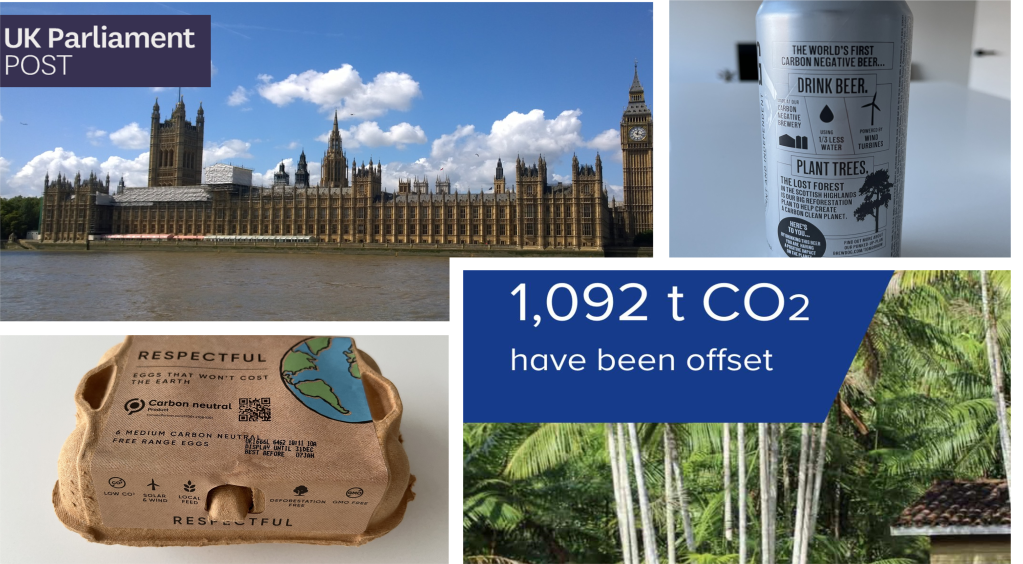Helen Hooker – h.hooker@pgr.reading.ac.uk

What is POST?
The Parliamentary Office for Science and Technology (POST) is a research and knowledge exchange service at UK Parliament. POST uses the best available research evidence and information to inform the legislative process and scrutiny of Government. POST advisors and fellows create POSTnotes and POSTbriefs on hot topics of interest to MPs and peers (members of the House of Lords) that are published online. Members may use information from POST publications during committee meetings or debates in Parliament.
The POSTnote process
POST fellows work for three months on an assigned topic outside of their usual area of research. The research is rapid! Fellows quickly identify experts from Academia, NGOs, Industry, and Government departments to speak to, and try to think of insightful questions to ask.
I was assigned the topic of carbon offsetting – yay! I interviewed almost 40 people that varied from those working with Indigenous Peoples in Guyana to others working with farming communities on Biochar (the carbon rich remains of super-heated organic material) research in the UK.
What is carbon offsetting?
A carbon credit is a token representing the avoidance, reduction or removal of atmospheric greenhouse gases (GHG), measured in tonnes of carbon dioxide equivalent (tCO2e). There are three main outcomes for projects creating carbon credits: Avoided emissions, for example by preventing deforestation and forest degradation; Reduced emissions, for example by restoring peatlands; and Removal and storage of CO2, for example by direct air capture or restoring forests. Businesses and individuals can purchase credits on the voluntary carbon market and may use them to offset their own emissions.

After lots of reading and reference gathering, the impartial POSTnote is drafted at around 3500 words and includes 100+ references. Internal and (a monster) external review follow (the draft note is sent to all contributors for comment) before final publication.
Working at Parliament
It was great to be a part of a team of POSTies, some seconded to select committees such as the Environmental Audit Committee or the Library. Others worked on different POSTnote topics like Green skills, AI in education and The future of fertiliser use. Westminster Palace is beautiful, awe-inspiring and a motivating place to work. There are lots of opportunities to enter ballots for activities and events. I was fortunate to attend the State Opening of Parliament (from the pavement, the King definitely waved at me), visit the archive tower (I counted nearly 300 steps up 12 floors and saw the original Freedom of Information Act 2000), and sing Christmas carols in Mr Speakers House.

Summary
I applied for a POST fellowship to learn more about policy and how research can have an impact. I loved the learning process, and I will use it in my research going forwards. I would like to thank SCENARIO DTP for funding the opportunity.